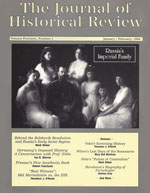The Third Reich’s Place in History
Throwing Off Germany’s Imposed History Ian Warren is the pen name of a professor who teaches at a university in the Midwest. Although Prof. Nolte did not originally understand that this interview was to appear in the Journal, he assented to publication after reviewing the complete text. Some thirteen years ago, a leading figure of…

